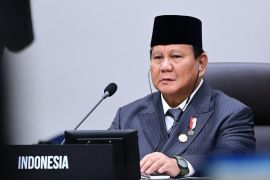MSMEs are the key drivers of innovation and efforts to encourage inclusive growth in the Asia-Pacific region.
MSMEs, employing over 50 percent of the workforce, constitute all but three percent of businesses and tend to employ a larger share of women entrepreneurs and groups that are underrepresented in the formal economy.
Related news: Pioneering research on renewable energy garners APEC prize
However, in an increasingly globalized world, MSMEs remain stranded in local markets. Small businesses constitute merely 35 percent of direct exports, thereby translating to the fact that a relatively small number of large corporations will continue to hold clout in the realm of global trade.
If small and medium enterprises were to flourish, they would have to expand beyond their borders. To this end, they will need some aid from their governments and multilateral and regional bodies, including the APEC.
Access to credit and capital
Entrepreneurs, with limited means, might find it difficult to gather capital to set up or expand. Banks sometimes require business owners to put up collateral to borrow money. The price is often steep enough to act as a deterrent.
"In some economies, the only collateral that is accepted for loans is land," Mike Dennis, an international legal consultant to APEC’s Economic Committee, stated while speaking at a policy dialogue in Puerto Varas in late August.
He noted that 70 percent of small businesses in developing economies do not own land, which in some places means their applications are automatically rejected.
"They must resort to informal credit, the cost of which is often prohibitively high," he noted.
Related news: Leaders should derive optimal benefits from APEC for greater progress
Dennis believes that secured transaction reform -- which is fundamentally revising the requirements and procedures for securing loans -- is the sole most critical step that economies can take to facilitate small businesses in becoming prosperous.
"It reduces the cost of credit and makes the process more predictable. It is especially important for women. In developing economies, few have access to real estate for collateral," Dennis noted.
An effective legal reform that is prescribed by the United Nations and adopted by APEC drops the requirement for land -- an immovable asset -- to enable business to pledge movable assets as collateral.
Thus, a small business owner can put on the line business equipment, inventory, or receivables in exchange for access to formal credit.
Related news: APEC to bolster cooperation on regulatory affairs of chemical industry
The APEC has been active in promoting such reforms through assessment report, then capacity building, to some success.
Dennis has suggested that Mexico, which had applied comprehensive secured transaction reform five years ago, is a sound exemplar of progress in this area. As of 2019, the country had over seven million registrations.
Some 68 percent of the registered collateral was non-traditional. Unbanked Mexican entrepreneurs pledged crops, livestock, fish, sewing machines, and vacuums for credit at affordable rates.
Affordable dispute resolution
After a business is set up and has begun trading or providing services abroad, new-fangled challenges crop up.
Microbusiness owners finding themselves in a dispute with a business partner on the other side of an international border are unlikely to have the time and financial resources for a lengthy judicial process or in-person arbitration.
Those owners will, in most likelihood, drop the case and chalk it off as a loss. The risk involved has dissuaded several micro-businesses from cross-border trade or competing in global supply chains.
Globalization and increasing digitalization have augmented the number of cross-border disputes.
Related news: APEC builds higher trust quotient with data protection system
It comes as no surprise that a survey of small businesses in the APEC region indicated an overwhelming requirement for effective and consistent dispute resolution.
"Micro, small, and medium enterprises need a legal environment that promotes a seamless system for trade. Dispute resolution is an essential part of this," James Ding, convenor of the Friends of the Chair for Strengthening Economic Legal Infrastructure, a group under APEC’s Economic Committee, stated.
Hence, Ding has proposed a simple solution for an affordable dispute resolution, which is to put it online.
He opined that online dispute resolution is an inexpensive and simple means of negotiating, mediating, and arbitrating for an effective and efficient settlement of disputes between entities in different economies.
Related news: APEC boosts confidence in digital economy
"Online dispute resolution, or ODR, can resolve disputes in a simple, fast, flexible, and cost-effective manner, without the need for parties to be physically present for the submission of physical documents," he explained.
APEC’s Economic Committee, which promotes domestic policy reforms in the Asia-Pacific region, recently endorsed a collaboration framework for APEC economies to form online systems to deal with cross-border disputes.
"The ODR framework is designed to promote confidence among businesses by providing quick electronic resolution and enforcement of disputes across borders, languages, and different legal jurisdictions," Ding remarked.
"Smaller- and medium-sized businesses will get an opportunity to compete and flourish in the global supply chain. It also promotes inclusivity, good regional business relationships, and entrepreneurship by women," he stated.
Related news: APEC encourages digital skills for women in tourism
The Economic Committee Chair Robert Logie called the framework a concrete initiative that harnesses digital technology to intensify regional economic cooperation by getting rid of barriers, in this case, obstacles faced by small businesses.
"I think the project really demonstrates some of the strengths of APEC as an organization. While we’re a consensus-based body, we can also look at good ideas and incubate new initiatives like this one. In this process, we have addressed the concerns of different economies. This approach makes these kinds of initiatives stronger and more likely to make a difference," Logie stated.
Chile will host the Small and Medium Enterprises Week in early September during which ministerial-level government officials in the Asia-Pacific will tackle similar initiatives.
A recent assessment noted that significant progress was made in the years of work that the APEC has put into helping smaller enterprises.
Establishing and running a business in APEC economies has become comparatively easier. However, undeniably, there will always be much room for improvement.
Related news: APEC tries to intensify women's contribution to drive economic growth
Related news: APEC to strengthen regional economic integration
Editor: Azizah Fitriyanti
Copyright © ANTARA 2019











